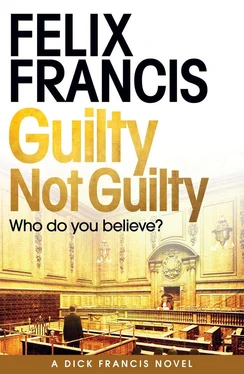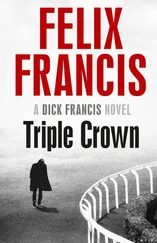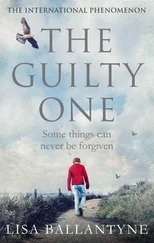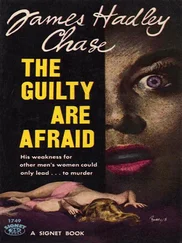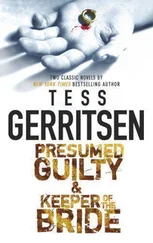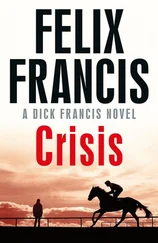‘This dog lead was the murder weapon,’ he said. ‘Mrs Gordon-Russell was found with it still tight round her neck.’
‘Oh.’
Reality struck back. I felt embarrassed at having laughed.
The DCI put the lead back in the large brown envelope and returned it to the floor. I had the impression that he’d rather enjoyed showing me his prized exhibit.
‘Can you tell us what your wife was wearing when you last saw her?’
I thought back to Tuesday afternoon. I was notoriously bad at remembering what Amelia wore, even on special occasions, and I had no reason to imagine that, when I left to go to Birmingham, it would be the last time I would see her.
‘Blue denim jeans, I think,’ I said, ‘with a red sweater. I can’t really recall. She was out in the front garden clearing leaves wearing a green Barbour jacket and gloves as I drove away. I do remember that. She waved at me.’
I could feel a surge of pain and anguish sweeping over me at the memory. I swallowed hard and tried desperately not to blink for fear that the tears collecting in my eyes would run down my cheeks and be visible to the policemen.
Why, I wondered, was I so fixated with not showing my emotions?
Amelia would often harangue me for not opening up to her with regard to how I really felt about her illness instead of being ‘so bloody restrained’ all the time.
It was my way of coping, I suppose. It was how I’d been brought up.
I did my ranting and crying in private.
‘I would like a few moments alone with my client,’ Simon said, perfectly aware of what was happening. He had known me for a long time.
‘Interview suspended at eleven forty-eight,’ said the DCI, stopping the recording machine.
He and his sergeant left the room and Simon passed me his handkerchief.
‘It’s all right,’ he said. ‘Show them you care.’
I wiped my eyes and shook my head, more in frustration than as a negative to his comment.
‘I’m sorry,’ I said.
‘Don’t be,’ Simon replied. ‘I feel the same way. I cried myself to sleep last night over Amelia.’
That made two of us.
After five minutes I had regained my composure and the two detectives returned. The recording was restarted.
‘Now, Mr Gordon-Russell,’ said the DCI, ‘tell me about your financial circumstances.’
‘What have they got to do with things?’
‘Do you stand to gain financially from your wife’s death?’
‘What sort of question is that to ask?’
‘Please answer it.’
‘As her husband, I suppose I am her next of kin,’ I said. ‘Therefore, as we have no children, I will inherit everything she owns, including her half of the house, as she would have done if I had died first. But I also inherit her half of the mortgage liability.’
‘Does she leave a will?’
‘Somewhere,’ I said. ‘We both made one when we were first married, leaving everything to each other. They’ll be in a filing cabinet in my study.’
‘How about investments and savings?’
‘Huh!’ I uttered. ‘We used to have those but there’s not much left.’
‘Why is that?’
‘Mental illness is not cheap, you know.’
‘But, surely, medical care in this country is provided free on the NHS.’
‘It can be but that’s not the only consideration. When I was with Forehanded Life I was part of their private health-insurance programme. It covered Amelia too, as my wife. When she first became ill, she was referred to the very best private psychiatrist I could find in Harley Street, and, when she needed it, she was an in-patient at a private psychiatric hospital in Marylebone.
‘Then, two years ago it became obvious to me that being in London every day was not sensible. Twice, when I was at work, she overdosed on her medication in failed but serious attempts at suicide, so I decided that I needed to keep a closer eye on her, to keep her safe. Hence, I resigned from Forehanded Life and set myself up as a self-employed consultant working as much as possible from home.’
‘Did you resent that?’ asked the DCI.
‘No, of course not. She was my wife and she needed me. However, as a result of me leaving the firm, their health-insurance scheme stopped paying for her treatment. By then, she was well used to her psychiatrist and psychotherapist and I was advised that continuity was vital. So I paid the huge private health-insurance premium myself and things went on as before, at least for a while.’
‘What happened then?’
‘The health-insurance company wrote to me and said that they had unilaterally determined that her condition was chronic rather than acute, and their policy didn’t cover chronic conditions other than cancer. So they stopped paying. For the past year I have been funding her treatment out of our savings — monthly appointments with the psychiatrist and twice-weekly visits to the psychotherapist. Not to mention two further lengthy stints in hospital at five grand a week.’
‘So you’re broke?’ asked the detective.
‘No,’ I said. ‘I’m not broke, but let’s say my retirement nest egg has taken rather a hit.’
‘So it is very convenient for you financially that your wife is now dead.’
I stared at him. ‘Don’t be ridiculous.’
The chief inspector again shuffled the papers in front of him. He read from one of them and then looked up at me.
‘And is it not also the case, Mr Gordon-Russell, that you now stand to benefit to the tune of a million pounds from your wife’s life insurance policy. A policy you took out only eight months ago?’
‘I have to say that I’m quite surprised they let you go.’
Simon Bassett had never been one to mince his words.
We were walking together out of Banbury Police Station.
‘But they have no evidence. They can’t have. I didn’t do it.’
‘But they think they have a motive,’ Simon said. ‘That’s often enough on its own for them to arrest. They then search for evidence later.’
I had tried to explain to the detectives why I had taken out such a large insurance policy on Amelia’s life but they hadn’t really understood, even if they had wanted to. To them it was simply a further reason why I had murdered her.
‘The policy had a no-pay-out-for-suicide clause,’ I’d told them. ‘So it wouldn’t pay out if Amelia killed herself. She knew that. It was one of the ways I tried to stop her doing it. I told her that if she died of self-inflicted injury or an overdose, or by jumping in front of a train, then I would get nothing. Strange logic, maybe, but she referred to it often, claiming that the thought of me losing all the premiums for no return had prevented her from doing anything stupid on more than one occasion.’
‘But the policy does pay out for murder.’ The DCI had said it more as a statement than a question.
‘I suppose so. Only death by suicide was specifically excluded.’
‘In that case there was a huge incentive for you to kill her before she could kill herself, in order to collect the insurance?’
Clearly, my efforts at explanation had been falling on deaf ears.
‘I didn’t want her to die,’ I’d pleaded to them. ‘I was just trying to keep her alive. I loved my wife and I miss her desperately.’
What did they want me to do to prove it? Break down and cry?
But that was not in my make-up and forcing myself to weep would surely appear as contrived and false and, worse still, as proof in their eyes of my guilt.
I looked up at the dark threatening sky and sighed. ‘I don’t think they believed a single word I said. You could see it in their faces.’
‘But it gave them something to consider,’ Simon replied. ‘Trust me, if they really thought you’d killed Amelia, you’d be in the cells now and not out here.’
Читать дальше
